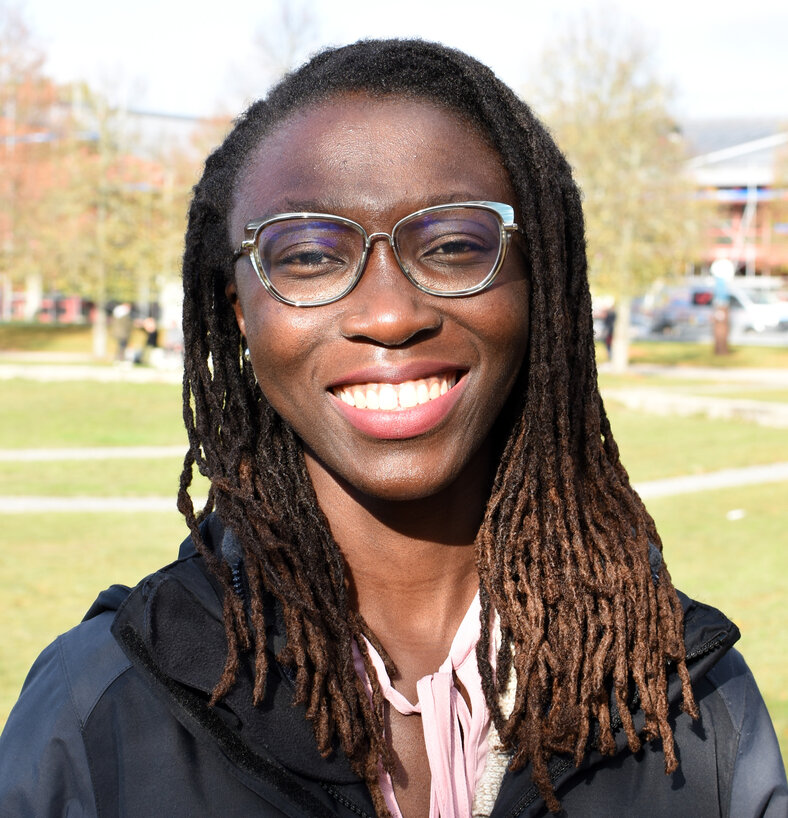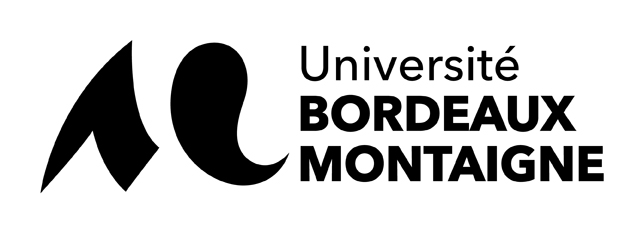Guest Scholars
1st Cohort (2020-2022)
- Dr. Lamine DOUMBIAHide
-

Postdoc Researcher
Institut Historique Allemand (IHA), Centre de Recherche sur les Politiques Sociales (CREPOS)
Dr. Lamine Doumbia is a postdoctoral fellow of the German Historical Institute Paris (DHIP) within the framework of the transnational research group "The Bureaucratisation of African Societies", based in Dakar at Centre de Recherche sur les Politiques Sociales (CREPOS).
His current research project examines "Land Governance and Bureaucratisation in Bamako, Ouagadougou and Dakar - Mimicry and Hybridisation of Logics".
This project echoes the themes of Lamine’s earlier research but adds an important aspect to the focus: Contrary to popular belief, it seeks to examine not only bureaucratisation on the part of the state, but also the bureaucratisations or bureaucratisation tendencies of those who engage with the state bureaucracy. Furthermore, Lamine analyses the use of bureaucratic technologies and digitalisation, and considers the urban land problem as part of the management of everyday crises in West Africa. From his perspective, diverse actors (individuals as well as federations, associations) use bureaucratic practices, official correspondences, social media and other digital technologies as creative forms of crisis management.
Lamine completed the degree programmes “Applied African Studies: Culture and Society of Africa” (BA) and “Cultural and Social Anthropology” (MA) at the University of Bayreuth. Under the supervision of Prof. Dr. Georg Klute and Prof. Dr. Mamadou Diawara, he completed his PhD in Anthropology at the Bayreuth International Graduate School of African Studies (BIGSAS) with a scholarship from the Friedrich Ebert Foundation.
Workshop "The Partition of Africa – Social Anthropological Perspective" (2nd to 5th July 2021)
Contact: fakoly.doumbia@gmail.com
- Dr. Cornelius Were OKELLOHide
-

Chairman and Lecturer at the Department of Environmental Sciences
Machakos University, KenyaDr. Cornelius Okello is the Chairman and Lecturer at Department of Environmental Sciences, Machakos University. He is also an associate at University of Nairobi’s Institute of Climate Change and Adaptation. He is an environmental scientist with a joint Erasmus Mundus doctoral degree in Marine and Coastal Management from University of Cadiz (Spain) and University of Bologna (Italy) and expert in climate change and freshwater resources. He also has a Joint European Masters in Water and Coastal Management from the University of Plymouth and Universidad de Cadiz. He has extensive experience in teaching, research, management projects, environmental impact assessments and audits, and working in multicultural organizations. Dr. Okello is a recipient on several research grants including National Geographic Society and Global Center on Adaptation. He is currently undertaking research on use of natural infrastructure to adapt to climate change in water sector of delta areas. He has also authored several articles in scientific peer-reviewed journals, with further author credits in three UNEP publications.
Workshop “An Introductory Look at the Geography of Africa” (12th to 23rd July 2021)
Contact: cbokello@gmail.com
- Dr. Colman Titus MSOKAHide
-

Sociologist, Senior Lecturer
Institute of Development Studies, University of Dar es Salaam, TanzaniaGuest stay from 1st to 10th December 2021
Contact: ctmsoka@gmail.com
2nd Cohort (2021-2023)
- Dr. Joh SARREHide
-

Freelance Coach, Trainer, Lecturer & Researcher
Joh says about this course: “Over the 16 years of my career as an (academic) researcher, I gained extensive experience in practically applying a broad range of methods, ranging from more open-radar ethnographic research (B.A., M.A. and PhD theses based on own research in Tanzania, Nepal and Kenya) to more structured formats (large-n KAPB-survey for German development cooperation in Tanzania, comparative research project in international relations in Kenya/Uganda etc.). In my writings, I have reflected on the theoretical aspects of these different methods. Additionally, I have always held a keen interest in research ethics and methodological questions arising from ethical considerations, documented e.g. by organizing a workshop on research ethics at VAD-young scholars’-conference in 2014. My experience in teaching courses for both academics and practicians is a benefit when sharing my methodological knowledge and experience with students in ways that are both efficient and accessible. I particularly look forward to teaching this course jointly with my esteemed colleague Dr. Alžběta Šváblová, whom I have known for several years. I am hopeful that students will profit greatly from the broad range of methodological knowledge and experience in research and teaching which we offer.”
EIMAS Spring School on Qualitative Methods (19th to 23rd April 2022)
together with Alžběta Šváblová
at the University of BayreuthEIMAS Workshop in Applied Qualitative Methods (5th to 8th December 2022)
together with Alžběta Šváblová
at the Bordeaux Montaigne UniversityContact: joh.sarre@uni-bayreuth.de
- Dr. Alžběta ŠVÁBLOVÁHide
-

Alžběta says about this course: “During my PhD (BIGSAS, University of Bayreuth), I gained sound experience with qualitative research methods, both theoretically and also practically, conducting my research project in a highly sensitive context of a post-conflict country. In addition to that, I bring my didactic skills, acquired and applied in various cultural contexts. In 2012, I offered seminars on research design and methodology at the Kofi Annan Institute for Conflict Transformation at the University of Liberia in Monrovia. Since 2017, I taught BA and MA courses at the University of Bayreuth (for German and international students), and in 2019, I co-taught a week-long research methodology course at the summer school at the University of Sousse, Tunisia. Last but not least, I see a specific added value in co-teaching the EIMAS Spring School with Joh Sarre. Our fields of expertise complement each other, and Joh’s profound knowledge of ethnographic methods combined with my focus on methods used in sociology and political science will be of a particular advantage for the participants.”
EIMAS Spring School on Qualitative Methods (19th to 23rd April 2022)
together with Joh Sarre
at the University of BayreuthEIMAS Workshop in Applied Qualitative Methods (5th to 8th December 2022)
together with Joh Sarre
at the Bordeaux Montaigne UniversityContact: alzbeta.svablova@uni-bayreuth.de
- Dr. Nikitta Dede ADJIRAKORHide
-

Postdoctoral Researcher in Literatures in African Languages
Nikitta's academic research focuses on literature in African languages, particularly, popular cultural forms (hip-hop and poetry), digital literature and aesthetics. Her current research project examines the digital literary networks of Swahili and Ga literature, using a comparative framework to investigate how African language literatures create and inhabit transnational digital networks. She has a PhD from the UBT where she examined how popular practices of hip-hop and spoken word poetry contribute to the construction of people’s lifeworlds, in particular, through ideologies of language, sexuality and aesthetics. She has taught courses on research methodologies in literature, digital literature, African poetry and popular culture. She is also a creative writer whose poetry and non-fiction have appeared in Africa is a Country, Praxis Magazine and Sand Journal.
Workshop: “Popular Culture in Africa - Between Art and Protest” (26th to 30th May 2022)
Contact: nikittadede@gmail.com
- Wanelisa ALBERT (Wanelisa Xaba)Hide
-

Decolonial Thinker, Storyteller and Researcher
University of Cape Town, South AfricaWanelisa is a decolonial thinker, storyteller, and researcher from Cape Town. She holds a Masters in Social Development at University of Cape Town and is currently doing her PhD in the Women and Gender Studies Department at the University of Cape Town. She is the co-founder and curator of "IPotsoyi KwaLanga", a feminist platform dedicated to promoting Black Queer spaces and celebrating Black joy. She is interested in merging decolonial thought and ancestral indigenous knowledge for Black liberation.
Guest stay from 28th November to 1st December 2022
- Alfdaniels MABINGOHide
-

Performer, Percussionist and Lecturer
Makerere University, Kampala, UgandaMabingo is a performer, percussionist, and lecturer at Makerere University and former PhD Fulbright fellow at the University of Auckland. To him, traditional dances, songs, and communal performances, which were a large part of his youth, were not simply enjoyable and cultural; they were also repositories of practical knowledge about human life that, when combined with the rest of the world's knowledge, might have exponential impacts. His research draws on the philosophies of Ubuntu and Sankofa and, examines the interplay between individuality and communality in the pedagogic applications of Ugandan traditional dance. He has published articles and has presented at conferences in Uganda, the U.S., Europe, Australia, and New Zealand.
Guest stay from 28th November to 1st December 2022
- Sylvie Vernyuy NJOBATIHide
-

Founder of Sysy House of Fame and Cultural Activist
CameroonSylvie is a journalist, filmmaker, and advocate for restitution, hailing from a village in Banso, in northwest Cameroon. She belongs to a folk called Nso. She is the creator of the cultural hub “Sysy House of Fame”, where she supports Nso youth in preserving their cultural identity. Inspired, by her lived experience of how colonial legacies continue to legitimise marginalisation and oppression, her works such as "Colonial Dialogue & Reconciliation", critically engage with the issue of colonial histories, legacies, and reconciliation.
Guest stay from 28th November to 1st December 2022
3rd Cohort (2022-2024)
- Madeline J. BASSHide
-

Early-Stage Researcher
University of Kent, UKMadeline recently completed her PhD with the MOVES (Migration and Modernity: Historical and Cultural Challenges) European Joint Doctorate, earning a dual degree from the Freie Universität Berlin and the University of Kent. Her research sits at the intersection of Black Studies and Critical Indigenous Studies, informed by a background in Anthropology and Sociology. In her dissertation project she worked with Oromo women in the Horn of Africa and the diaspora, exploring practices of resistance through the lens of Black geography. Her other academic interests include anti-colonial and abolitionist organizing, community archives, and the use of participatory methodologies.
Workshop "Critical African Geographies" (16th to 20th January 2023)
- Dr. Mariana DIAS PAESHide
-

Researcher
Max Planck Institute for Legal History and Legal Theory, Frankfurt am Main, GermanyWorkshop "Court Cases and the Writing of African History" (23rd to 27th January 2023)
- Prof. Dr. Emnet Tadesse WOLDEGIORGISHide
-

Associate Professor and Director
Ali Mazrui Center for Higher Education Studies, University of Johannesburg, South AfricaEmnet Tadesse Woldegiorgis completed his PhD at the University of Bayreuth, Germany, where he also worked as a researcher between 2015 and 2019. He did his joint Master's Degree in Higher Education Studies at Oslo University in Norway, Tampere University in Finland and Aveiro University in Portugal. He is certified in two advanced-level research training in higher education in the Netherlands at the Centre for Institutional Cooperation (ICIS) Vrije Universiteit, Amsterdam; and training on Leadership and Management of Higher Education Institutions in Maastricht School of Management. Before his PhD, he worked as Head of Quality Assurance Office, Department Head and team leader at Mekelle University, Ethiopia. He has been researching higher education in Africa for the past ten years. He has published several peer-reviewed academic works on theories of regionalisation, internationalisation, academic mobility, economics of higher education, partnership models, decolonisation debates and harmonisation strategies in higher education.
Recent publications:
- Woldegiorgis, E. T. (2022). Mitigating the digital divide in the South African higher education system in the face of the Covid-19 pandemic. Perspectives in Education, 40(3), 197-211.
- Woldegiorgis, E. T. (2022). Configurations of progress and the historical trajectory of the future in African higher education. Educational Philosophy and Theory, 54:11, 1839-1853, DOI: 10.1080/00131857.2021.1940955.
- Woldegiorgis, E. T., & Jonck, P. (2022). Higher Education in the Face of a Global Pandemic. BRILL.
- Woldegiorgis, E. T. (2021). Decolonising a higher education system which has never been colonised. Educational Philosophy and Theory, 53(9), 894-906.
Workshop "Qualitative Research Methods" (11th to 15th April 2023)
- Dr. Remadji HOINATHYHide
-

Anthropologist
Institute for Security Studies (ISS), N'Djamena, ChadRemadji joined the Institute for Security Studies (ISS) in 2019 as a senior researcher (based in N'Djaména, Chad) in the Lake Chad Basin Programme and then as a senior Researcher for Central Africa and the Great Lakes from January 2023. Previously, he headed the Centre de Recherche en Anthropologie et Sciences Humaines (CRASH) in N'Djaména, Chad. A former fellow of the Max Planck Institute for Social Anthropology (Halle-Saale, Germany), Hoinathy Remadji holds a PhD in anthropology from the Martin Luther University of Halle-Wittenber (Germany).
Remadji's research initially focused on natural resources and their governance. He then researched various socio-political dynamics in Chad, including migration and conflict, religious diversity and radicalisation processes, religious-based violent extremism and security governance. The Lake Chad region and Central Africa are his priorities.Seminar "Security Dynamics in Africa: an Increasing Trend towards Transnationalisation" (30th May to 2nd June 2023)
- Michael DAVIES-VENNHide
-

Environmental Policy Analyst and Communication Professional
Vrije Universiteit Amsterdam, The NetherlandsMichael Davies-Venn holds a Master in Public Policy awarded by the Hertie School of Governance, Berlin, Germany where he trained as an analyst, and a Master in Arts from the University of Sheffield, United Kingdom. He graduated (Summa cum laude), St. Cloud State University, US. An adept transdisciplinary researcher, he works on transnational environmental governance and global sustainability topics, particularly on policy solutions. Davies-Venn focuses research at the nexus of climate change solutions and global sustainability policy implementation between developing and developed regions. Within the global environmental politics domain, his geographic focus is Sub-Saharan Africa.
Davies-Venn is a recipient of numerous awards from academic institutions in Europe and North America, including as Junior Fellow in Ethics of the Anthropocene at the Vrije Universiteit Amsterdam, The Netherlands, where he remains a researcher. He has co-authored book chapters in academic texts and authors research articles analysing transnational solutions for climate change, sustainability and energy transitions, among related topics. A skilled policy analyst, he provides policy recommendations for reforms to international climate change frameworks such as to climate change finance, deepening links between climate change and sustainability solutions with justice and equity, and processes at multilateral regimes often published in commissioned articles by International Politics Today Journal, Energy Transitions; Heinrich-Böll-Stiftung; European Union and Climate Strategies.
Previously an adjunct communication professor, and media consultant with the United Nations, Davies-Venn has advised political leaders, UN diplomats, and policymakers. He is a Canadian national but a cosmopolitan, having lived in several countries across continents and is constantly seeking to learn about, by immersing in, other cultures. He lives in Berlin, Germany.
Guest stay from 20th to 23rd November 2023
- Farah ISMAILHide
-
Project Support and Peacebuilding Officer
Transition and Recovery Unit, International Organization for Migration, Juba, South SudanGuest stay from 20th to 23rd November 2023
- Aincre Maame-Fosua EVANSHide
-
Guest stay from 20th to 23rd November 2023
- Emmanuelle DAVIDHide
-
Associate Researcher
Les Afriques dans le Monde (LAM), Sciences Po Bordeaux, FranceWorkshop “Introduction to Research Methodologies” (11th to 14th September 2023)
4th Cohort (2023-2025)
- Dr. Esteban Jose ALFARO SALASHide
-
Lecturer in African History
School of Oriental and African Studies (SOAS), University of London, UKCourse on "Race and Slavery in Western Africa" (3rd to 6th January 2024)
- Prof. Dr. Naouel ABDELLATIF MAMIHide
-
Rector in Charge of the External Relations
Mohamed Lamine Debaghine, Sétif 2 University, AlgeriaCourse on "Competency Based Approach for Refugees Integration in Higher Education in Algeria: Ci-RES Project as a Case Study" (15th to 18th January 2024)
- Prof. Dr. Momodou Lamin SALAHHide
-
Director of the Centre for Academic Innovation and Professor of Teaching and Learning
De Montfort University, Leicester, UKCourse on "Southern Voices and Decolonisation: Towards a Pedagogy of Disruption" (23rd to 26th January 2024)
- Prof. Dr. Sati FWATSHAKHide
-

Professor of African History
Department of History and International Studies, University of Jos, NigeriaWorkshop on "Methods and Ethics in Qualitative Research" (8th to 12th April 2024)
- Dr. Raymond Boadi FREMPONGHide
-

Associate Professor in Development Economics
European School of Political and Social Science, Catholic University of Lille, FranceWorkshop on "Reproducible Research for Social Scientists with Stata" (9th to 12th July 2024)
- Dr. Ephantus KIHONGEHide
-
Lecturer in Economic Geography
Jomo Kenyatta University of Agriculture & Technology (JKUAT), KenyaWorkshop on "Role of Small and Medium Enterprises in Small Towns in Rural-urban Linkages. The Case of Sagana and Karatina in Central Kenya" (9th to 13th September 2024)


